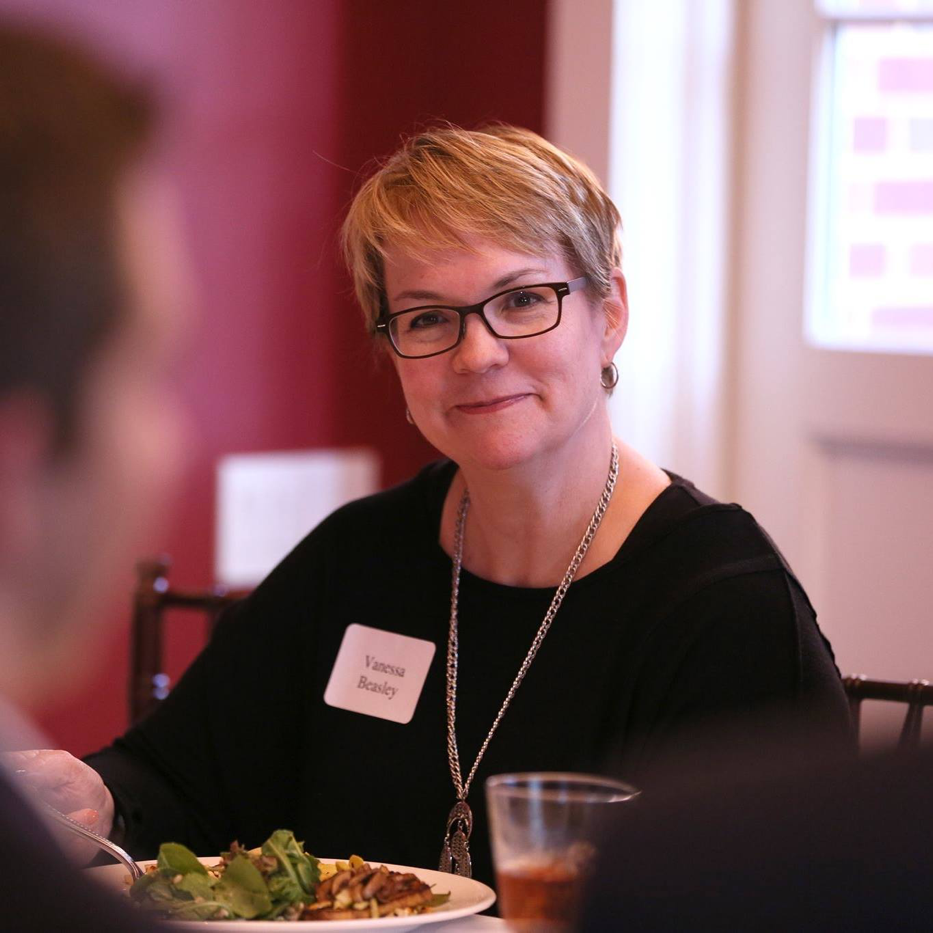From D to Dean
Vanessa Beasley, Ph.D.
Dean of The Martha Rivers Ingram Commons
When I remember it now, I can still hear the sound of my mother crying. In the 1980s, when I was a Vanderbilt undergraduate, your final semester grades were sent home via the mail. There was no way for students to look up your final grades online as soon as each of your professors have submitted them, as many students do now. Instead, you waited for the official-looking envelope with the university seal on it to come to your house after each semester ended. That’s how you knew how you did that semester, where you ranked.

And when I opened that envelope after my first semester at Vanderbilt, it was really clear where I was: at the bottom. My grades were bad, really bad. I’d been an “A student” all of my life up until that point, even in AP classes in high school, but that first semester in college, I did not make one A. In fact, there were two D’s on that sheet of paper. O.k., one of them was a D+, but that plus brought small comfort to me…and clearly none to my mother. I’d never seen a D on a report card before. We were both shocked.
“How could this happen,” she asked me, sobbing. She was a single parent, and Vanderbilt’s tuition was expensive relative to her income. And truly I didn’t know what to say. I didn’t know how this had happened. In high school, I could look over my notes or homework once a few hours (or, um, minutes) before an exam and still do fine. In high school, I wrote most papers on the night before they were due. In high school, getting good grades came easy to me. I didn’t have to think about how they happened; they just happened.
That first semester was a wake-up call. I needed a different strategy. I needed to learn how to study. In short, I needed to ask for help. All of that was new to me in two senses. First, these were things I had never had to do before, so I had to learn how to do them: who to ask for help, where to go to study effectively and away from distractions, and how to think about the best way to budget my time. Second, these were things I never thought I’d need to do. Other people asked for help, not me; I gave the help. Was I suddenly a different person than I was in high school?
Of course the answer is that I didn’t change; my environment did. What it took to succeed in one environment was not sufficient in another one. Vanderbilt was a rigorous academic setting, and that was one of the reasons I had wanted to come to school here. I wanted to be challenged; school had probably come too easy to me until that point. I guess it just never occurred to me, or my mother, that I would not meet the challenge that first semester.
But you know what? Those first semester grades were an important wake-up call. I decided to change my study habits. I learned what it felt like to need and ask for academic help, and that it was o.k. to do both. I resolved to take more responsibility for my work, and I started to make different choices about time management. In retrospect, learning how to do all of those things was a tremendous boon to my academic career: one that served me well throughout the rest of my undergraduate days and then especially in graduate school, all the way through the completion of my doctoral degree. Indeed, at my Ph.D. graduation, my mother and I recalled those first grades, and how far I’d come. We talked about how that was a beginning, not an ending, and then we both shared tears of joy for all the lessons learned along the way.

Leave a Response